
Lamu: The Timeless Gem of Kenya
Lamu, a historic town on Kenya's coast, offers a unique blend of Swahili culture, ancient architecture, and serene beaches. As one of the oldest continuously inhabited settlements in Kenya, Lamu has a rich history dating back to the 14th century. It is a UNESCO World Heritage Site, known for its narrow streets, beautiful coral stone buildings, and intricately carved wooden doors. Walking through Lamu, you'll feel transported back in time. There are no cars here; instead, donkeys are the main mode of transport. The town’s relaxed pace and friendly locals make it a charming and peaceful destination. The Lamu Museum, Lamu Fort, and the Swahili House Museum are must-visits for history enthusiasts, offering deep insights into the island’s past. Lamu is also famous for its festivals. The Lamu Cultural Festival, held annually, showcases traditional dances, music, and dhow races. The Maulidi Festival, celebrating the birth of the Prophet Muhammad, is another significant event marked by processions and poetry. For those seeking tranquility, the nearby Shela Beach is perfect for unwinding, with its pristine sands and clear waters. Lamu’s culinary scene is not to be missed, with fresh seafood and Swahili dishes tantalizing your taste buds. Whether you're exploring the labyrinthine streets of Old Town, sailing on a traditional dhow, or simply soaking up the sun on the beach, Lamu offers a unique and unforgettable experience.
Local tips in Lamu
- Pack light and comfortable clothing; the town is best explored on foot.
- Respect local customs, especially during religious festivals.
- Try the local cuisine, especially the seafood and Swahili dishes.
- Bring a good mosquito repellent, particularly if visiting during the rainy season.
- Stay hydrated and protect yourself from the sun with a hat and sunscreen.
Neighbourhoods in Lamu
Lamu: The Timeless Gem of Kenya
Lamu, a historic town on Kenya's coast, offers a unique blend of Swahili culture, ancient architecture, and serene beaches. As one of the oldest continuously inhabited settlements in Kenya, Lamu has a rich history dating back to the 14th century. It is a UNESCO World Heritage Site, known for its narrow streets, beautiful coral stone buildings, and intricately carved wooden doors. Walking through Lamu, you'll feel transported back in time. There are no cars here; instead, donkeys are the main mode of transport. The town’s relaxed pace and friendly locals make it a charming and peaceful destination. The Lamu Museum, Lamu Fort, and the Swahili House Museum are must-visits for history enthusiasts, offering deep insights into the island’s past. Lamu is also famous for its festivals. The Lamu Cultural Festival, held annually, showcases traditional dances, music, and dhow races. The Maulidi Festival, celebrating the birth of the Prophet Muhammad, is another significant event marked by processions and poetry. For those seeking tranquility, the nearby Shela Beach is perfect for unwinding, with its pristine sands and clear waters. Lamu’s culinary scene is not to be missed, with fresh seafood and Swahili dishes tantalizing your taste buds. Whether you're exploring the labyrinthine streets of Old Town, sailing on a traditional dhow, or simply soaking up the sun on the beach, Lamu offers a unique and unforgettable experience.
When is the best time to go to Lamu?
Iconic landmarks you can’t miss
Peponi Hotel Lamu
Discover the serene beauty and rich cultural heritage of Shela, Lamu at Peponi Hotel, your perfect coastal retreat.

Lamu House
Discover Lamu House - a serene indoor lodging experience in Lamu, Kenya, blending comfort with authentic coastal culture and hospitality.

The Majlis Hotel Lamu
Experience luxury and tranquility at The Majlis Hotel Lamu, where stunning ocean views meet exceptional hospitality in the heart of the Lamu Archipelago.

Lamu Fort
Experience the historical allure of Lamu Fort, a UNESCO World Heritage site that captivates with its rich history and stunning architecture.
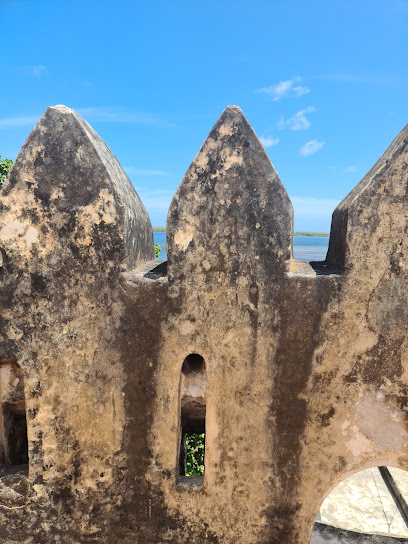
Floating Bar & Restaurant Lamu
Discover the Floating Bar & Restaurant Lamu, where fresh seafood meets stunning Indian Ocean views in a vibrant and relaxing atmosphere.
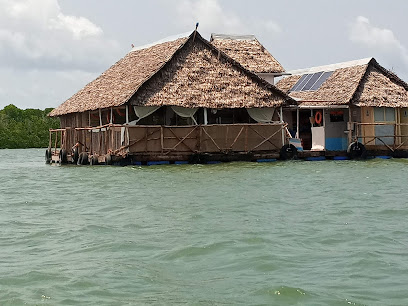
Lamu Museum
Explore the vibrant heritage of Lamu at the Lamu Museum, showcasing the unique blend of Swahili, Arab, and African influences in culture and history.
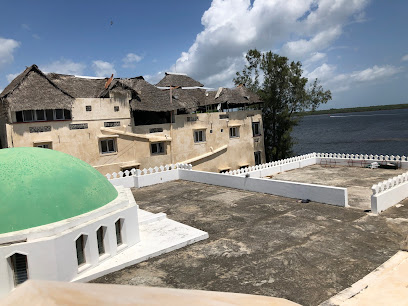
Kijani Hotel
Discover the tranquility of Kijani Hotel in Lamu, where oceanfront beauty and exceptional hospitality combine for an unforgettable stay.
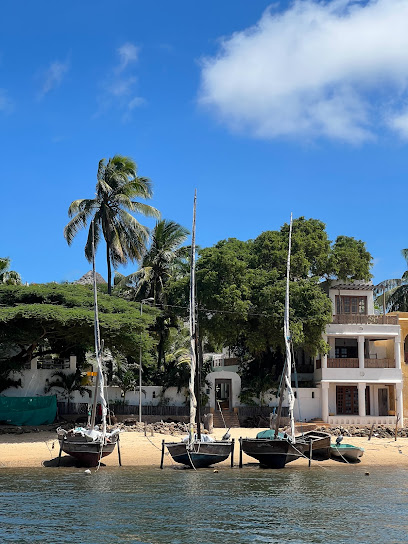
Lamu Sunsail Hotel & Restaurant
Experience the charm of Lamu at Lamu Sunsail Hotel & Restaurant, where coastal beauty meets authentic Swahili hospitality.

Seafront Cafe
Experience the perfect blend of stunning ocean views and exquisite local cuisine at Seafront Cafe in Lamu, a coastal paradise.
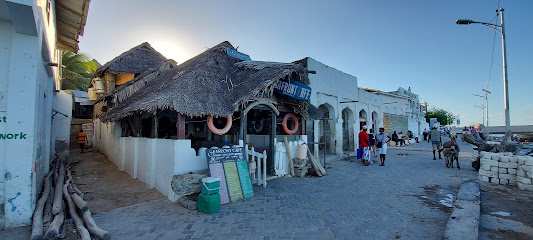
LA DULCE TORO CAFE
Discover the essence of Lamu at LA DULCE TORO CAFE, a charming coffee shop offering exquisite brews and a welcoming atmosphere for tourists.
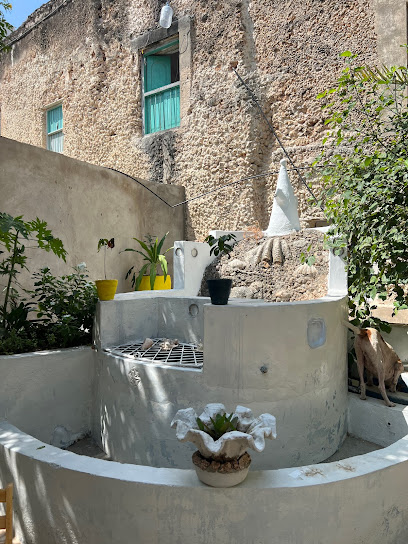
The Fort Of Shela
Experience the enchanting beauty and cultural richness of Shela at The Fort Of Shela, a serene holiday apartment rental on Lamu Island.
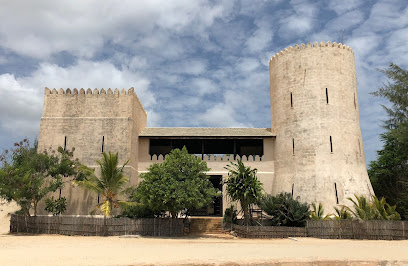
Shella Bahari Guest House
Discover the beauty of Shela at Shella Bahari Guest House, where comfort meets the stunning coastal scenery and rich local culture.

JamboHouse
Discover the cultural charm and comfort of JamboHouse, a unique lodging experience in the historic town of Lamu, Kenya.

Jannat House
Discover the tranquil charm of Jannat House on Lamu Island, where tradition meets modern comfort in a serene coastal paradise.

Lamu Town Square
Experience the vibrant culture and historic charm of Lamu Town Square, the heart of Lamu Island, a UNESCO World Heritage Site.
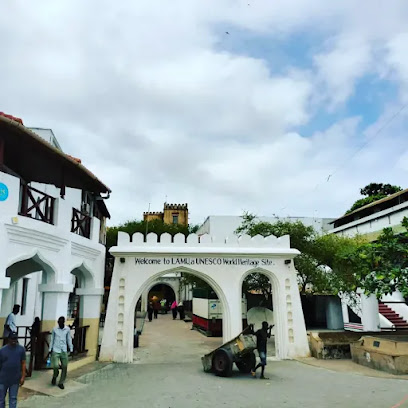
Unmissable attractions to see
Masjid Riyadha & Islamic Centre
Explore the architectural beauty and spiritual significance of Masjid Riyadha & Islamic Centre, a UNESCO World Heritage site in Lamu, Kenya.
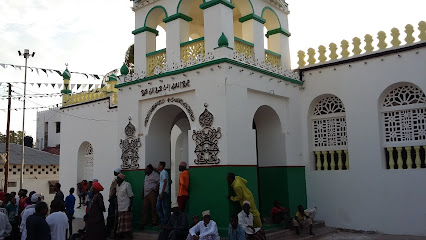
Siyu Fort
Discover the historical significance of Siyu Fort in Lamu, a captivating blend of Swahili, Arab, and Portuguese heritage.
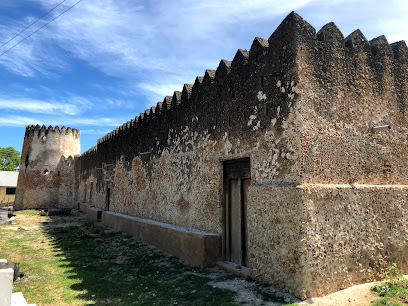
Baharini
Explore Baharini, a stunning coastal haven in Kenya, where pristine beaches and vibrant culture create unforgettable travel experiences.
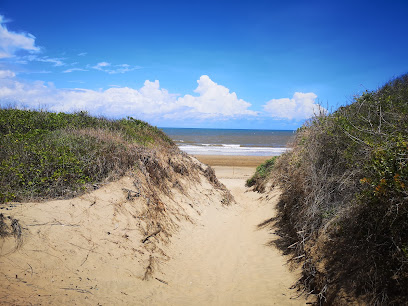
Mainland Crab Farm
Explore the vibrant crab farming practices at Mainland Crab Farm in Mokowe, where marine life meets sustainable aquaculture in a beautiful coastal setting.

Shela dunes
Experience the breathtaking beauty of Shela Dunes, a coastal paradise in Kenya, with stunning views, rich biodiversity, and endless adventure.
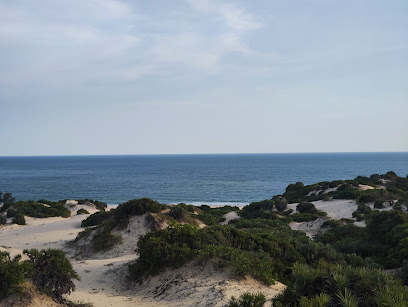
Ras Kitao
Experience the tranquil beauty of Ras Kitao in Shela, a hidden gem offering stunning ocean views and a serene atmosphere perfect for relaxation.
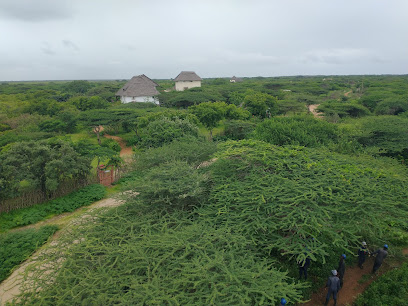
Lamu Local Artist Shop (Shella)
Immerse yourself in the artistic charm of Lamu Local Artist Shop, where creativity meets sustainability through unique handcrafted treasures.
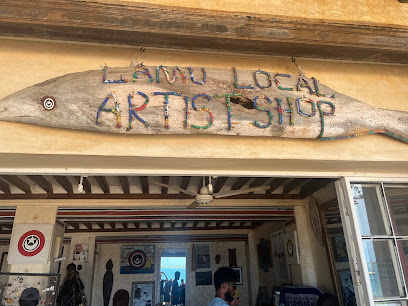
Kinai farm
Discover the serene beauty of Kinai Farm in Lamu, Kenya, a tranquil garden oasis filled with vibrant flora and rich biodiversity.
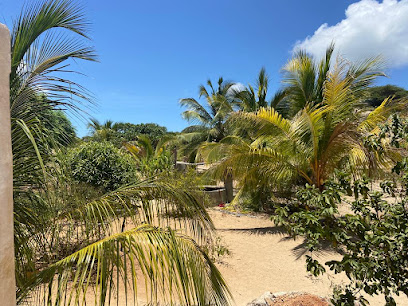
Waridi Beach,Lamu Mainland
Experience the pristine beauty and tranquility of Waridi Beach on Lamu Mainland, a coastal paradise for relaxation and adventure.
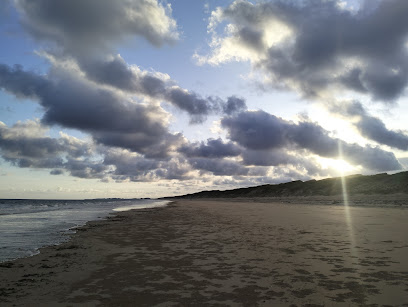
Kisuke Beach
Discover the tranquil beauty of Kisuke Beach, a hidden gem along the Kenyan coast, perfect for relaxation and adventure in nature's embrace.
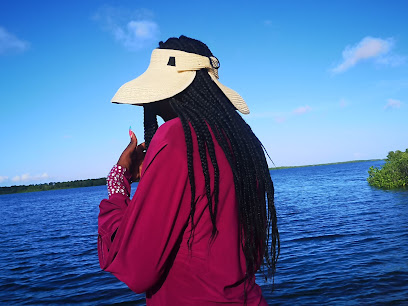
Wiyoni Beach
Experience the unspoiled beauty of Wiyoni Beach in Mkomani, Kenya, where tranquility meets stunning coastal views and adventure awaits.
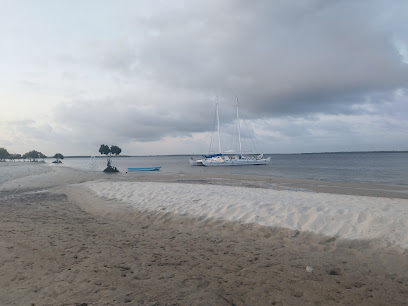
Ubunifu Lamu Community Art Center
Explore the Ubunifu Lamu Community Art Center, a vibrant hub of creativity and local culture in the heart of Shela, Kenya.
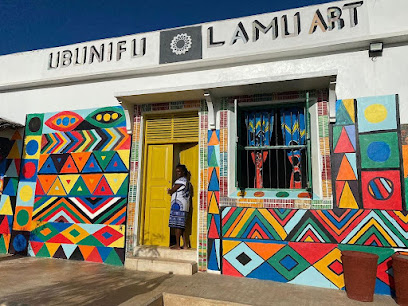
Shela
Explore the serene beauty and vibrant culture of Shela, a hidden gem on Lamu Island, Kenya, perfect for a unique travel experience.
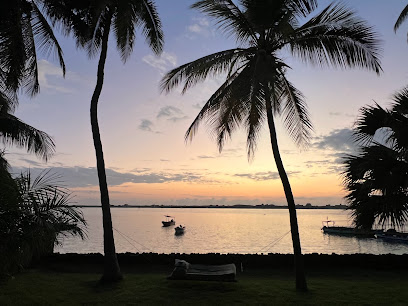
Takwa Beach 425
Experience the enchanting beauty of Takwa Beach on Lamu Island, where pristine sands meet rich cultural heritage and breathtaking sunsets.
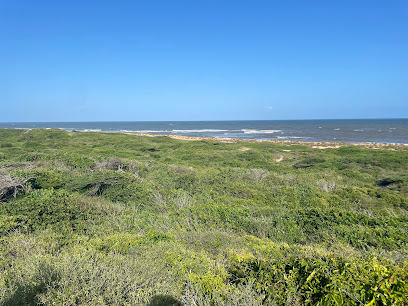
Mwambani
Experience the soothing beauty of Mwambani Park in Kiongwe, Kenya, a perfect retreat for nature lovers and a serene escape from city life.

Essential places to dine
Peponi Hotel Lamu
Experience luxury and local charm at Peponi Hotel Lamu - your perfect getaway on Shela Beach.

Lamu Palace Hotel
Experience the rich flavors of coastal Kenya at Lamu Palace Hotel, where exquisite cuisine meets breathtaking ocean views.
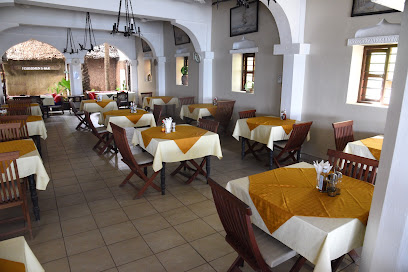
Floating Bar & Restaurant Lamu
Discover a unique dining experience on the water at Floating Bar & Restaurant Lamu - where fresh seafood meets breathtaking ocean views.
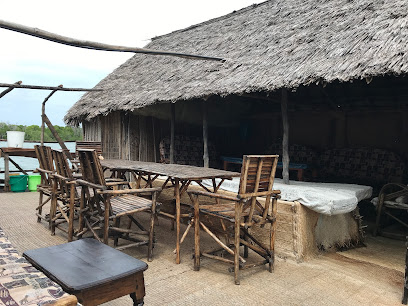
Mangrove Restaurant
Discover authentic Kenyan coastal cuisine at Mangrove Restaurant in Lamu – where every dish tells a story.
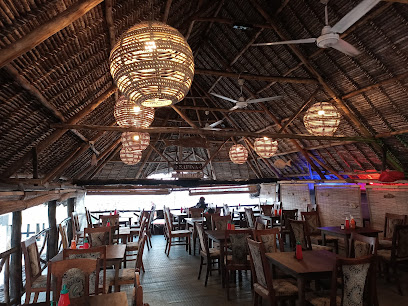
Lamu Sunsail Hotel & Restaurant
Experience authentic Swahili cuisine and warm hospitality at Lamu Sunsail Hotel & Restaurant on beautiful Lamu Island.

Seafront Cafe
Enjoy delicious local cuisine with stunning ocean views at Seafront Cafe in Lamu – a perfect dining spot for tourists seeking authentic experiences.
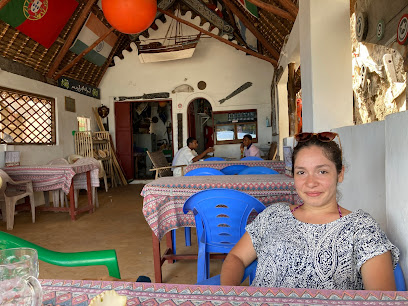
New Mahrus Hotel and Rooftop restaurant
Experience culinary excellence with stunning views at New Mahrus Hotel and Rooftop Restaurant in Lamu.
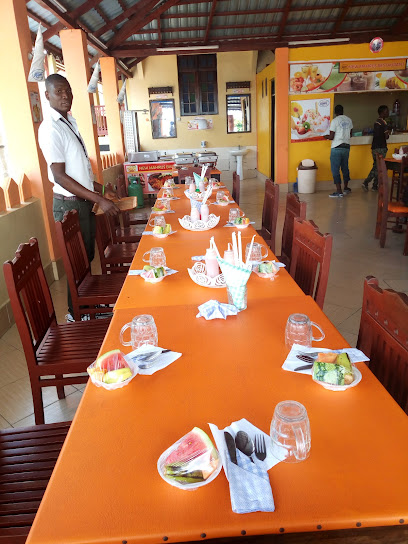
Sea Suq
Discover fresh seafood delights at Sea Suq in Shela - where local flavors meet stunning ocean views.
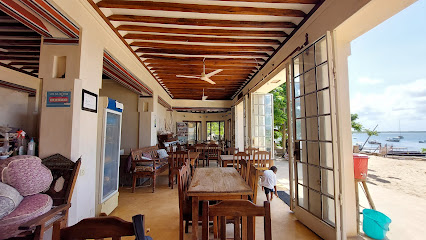
Stop Over Restaurant
Experience authentic Swahili cuisine at Stop Over Restaurant in Lamu - where tradition meets taste.
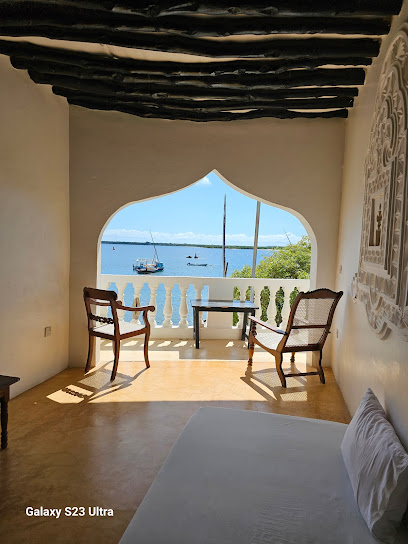
Labanda Restaurant
Discover authentic Kenyan cuisine in Lamu at Labanda Restaurant, where every dish tells a story of tradition and flavor.
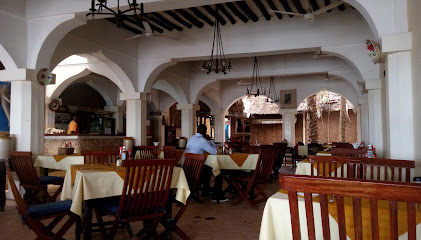
Whispers Cafe
Discover authentic Swahili flavors at Whispers Cafe in Lamu – where every meal tells a story.
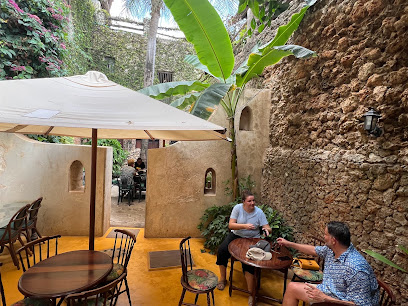
Sailors Joint
Discover authentic Kenyan flavors at Sailors Joint in Lamu - where delicious cuisine meets stunning ocean views.
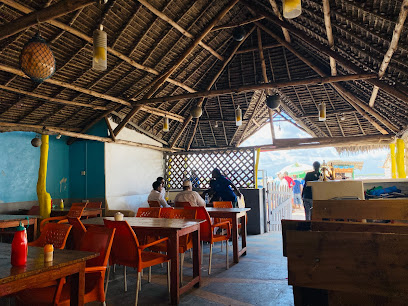
Bush Gardens
Experience authentic Kenyan flavors at Bush Gardens in Lamu – a tranquil dining oasis amidst lush greenery and rich cultural heritage.
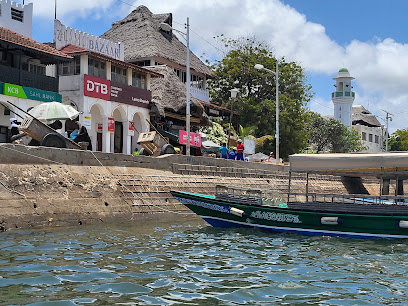
Bahari Restaurant
Experience the flavors of Kenya at Bahari Restaurant in Shela - where every meal comes with a view of paradise.
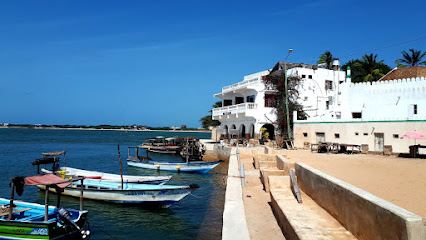
Mwana Arafa Restaurant Gardens
Experience authentic Kenyan cuisine amidst lush gardens at Mwana Arafa Restaurant Gardens in Lamu.
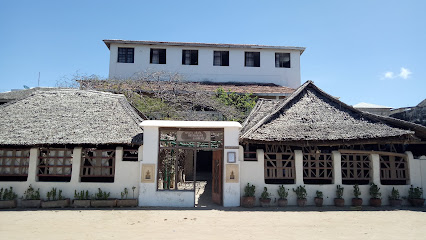
Markets, malls and hidden boutiques
Tumaini Shop Bajuri
Discover unique local crafts and delicious cuisine at Tumaini Shop Bajuri, a vibrant shopping destination in the heart of Lamu, Kenya.
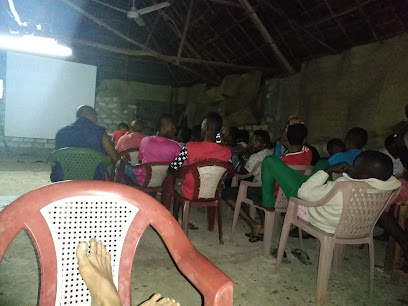
African Corner Lamu
Explore African Corner Lamu, a vibrant craft store in Shela showcasing unique handcrafted treasures reflecting the rich culture of Kenya.
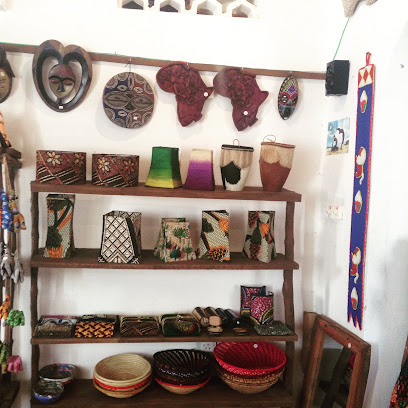
Madina Shop Bajuri
Discover the vibrant culture of Lamu at Madina Shop Bajuri, where shopping meets local craftsmanship and culinary delights.
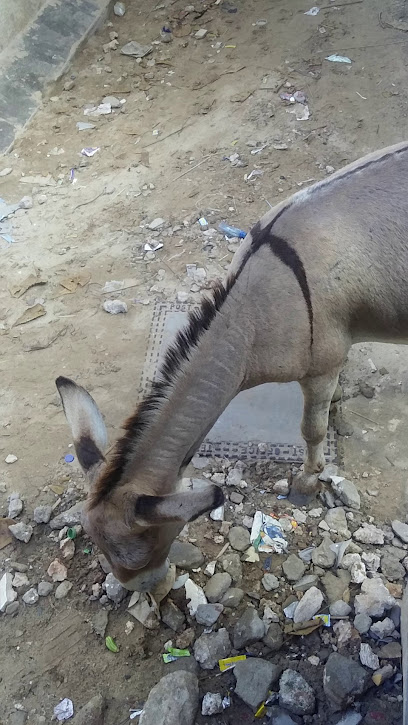
Lamu Silversmith
Explore the exquisite craftsmanship of Lamu Silversmith, where every piece of jewelry reflects the rich heritage and artistry of this coastal town.
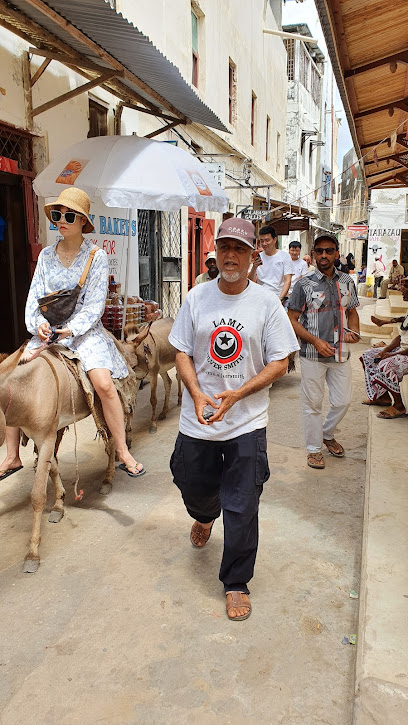
Sikuhuni Sabina shop
Explore Sikuhuni Sabina Shop in Langoni for a unique shopping experience filled with local treasures and authentic Kenyan culture.
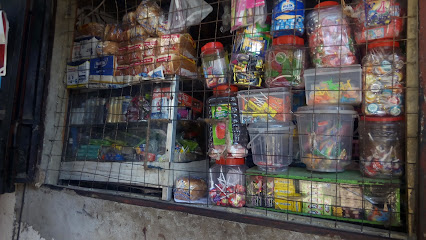
Alswaleh Shop Twaif
Explore the vibrant Alswaleh Shop Twaif in Lamu, where local crafts and unique souvenirs come together in a charming shopping experience.

Lamu Local Artist Shop (Shella)
Explore the artistic heart of Lamu at the Local Artist Shop in Shella, showcasing unique handicrafts and sustainable creations from local artisans.
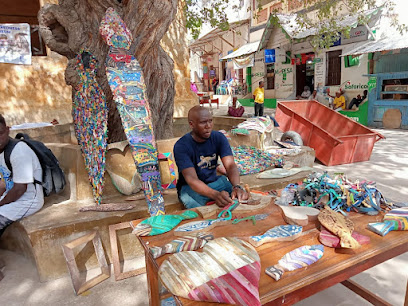
Island Bakery
Discover sweet delights at Island Bakery in Lamu, where artisanal pastries meet the charm of the Kenyan coast.
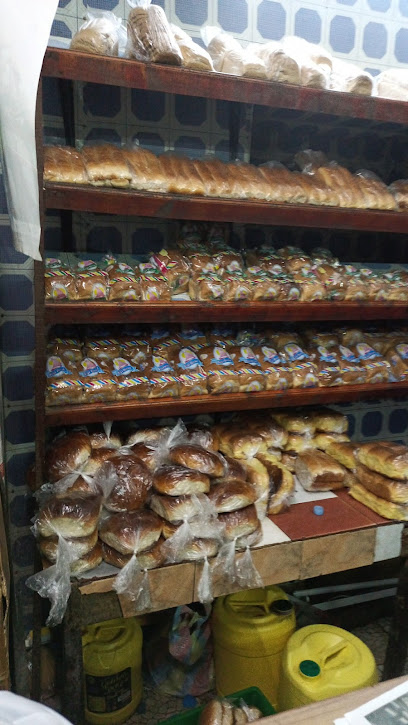
Elizabeth's Tailoring Shop
Explore Lamu's unique fashion scene at Elizabeth's Tailoring Shop, where local craftsmanship meets personalized style for every visitor.
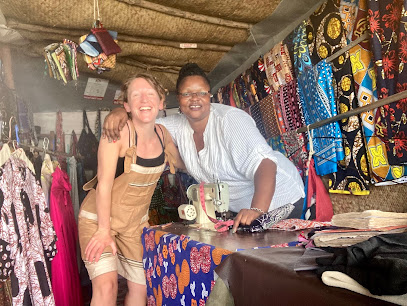
ARAFAT SHOP WHOLESALE
Discover the essence of Lamu at Arafat Shop Wholesale, where local flavors and unique products await every traveler.
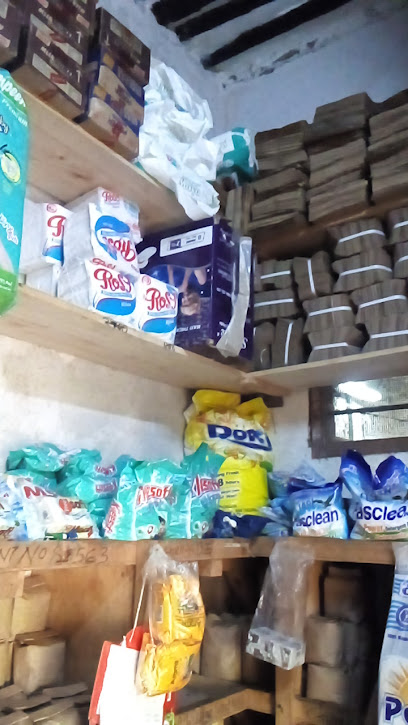
Safaricom Customer Care Centre Lamu-island Bajber Stores Ltd
Stay connected in Lamu with Safaricom's reliable customer care center, offering mobile services, accessories, and expert phone repair.

Lulu Stories
Discover unique local crafts and souvenirs at Lulu Stories on Shela Lamu Island, a charming gift shop reflecting the rich culture of Lamu.
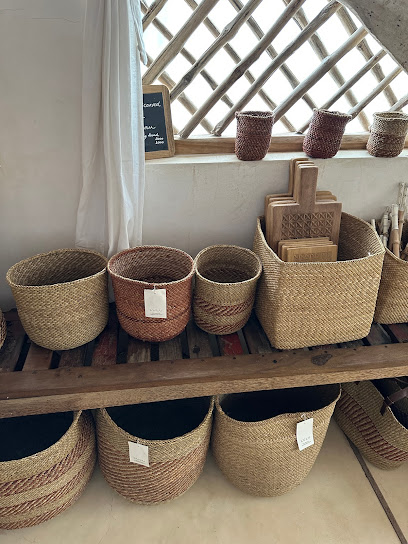
Zein ingco shop
Discover unique local crafts and vibrant souvenirs at Zein Ingco Shop, a gem in Lamu's shopping landscape.
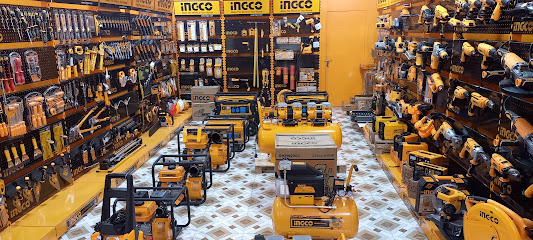
Haleji Grocer Store
Explore the charm of Haleji Grocer Store in Lamu, where local flavors and friendly service meet in a delightful shopping experience.

Alshuraa Youth Group
Discover the heart of Lamu at Alshuraa Youth Group, a vibrant community store offering local crafts and cultural experiences.

Essential bars & hidden hideouts
Lamu Palace Hotel
Experience exquisite dining at Lamu Palace Hotel, where local flavors meet international cuisine in a stunning coastal setting.
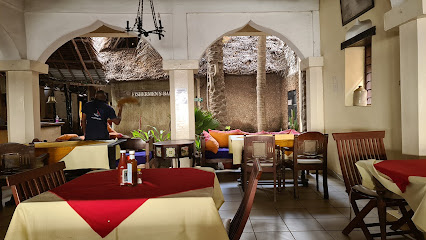
Floating Bar & Restaurant Lamu
Enjoy breathtaking views and delicious cuisine at the Floating Bar & Restaurant in Lamu, a unique experience on the Indian Ocean.
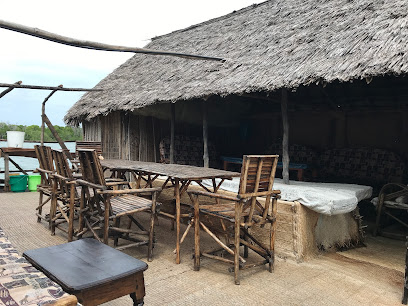
Mangrove Restaurant
Discover the taste of Lamu at Mangrove Restaurant, where local specialties meet breathtaking coastal views in a vibrant dining atmosphere.
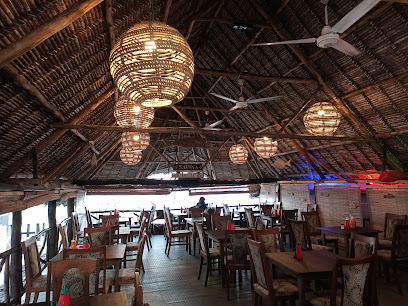
Lamu Sunsail Hotel & Restaurant
Discover the flavors of Lamu at Lamu Sunsail Hotel & Restaurant, where delightful cuisine meets breathtaking seaside views.

Seafront Cafe
Experience local flavors and breathtaking ocean views at Seafront Cafe, a culinary delight on Lamu's beautiful Corniche Path.
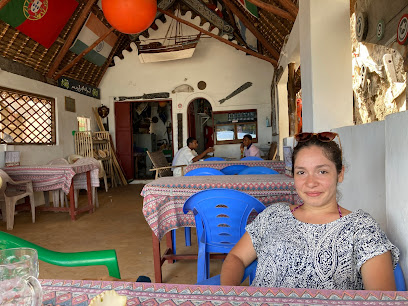
New Mahrus Hotel and Rooftop restaurant
Discover the culinary delights and stunning views at New Mahrus Hotel and Rooftop Restaurant in the heart of Lamu, Kenya.
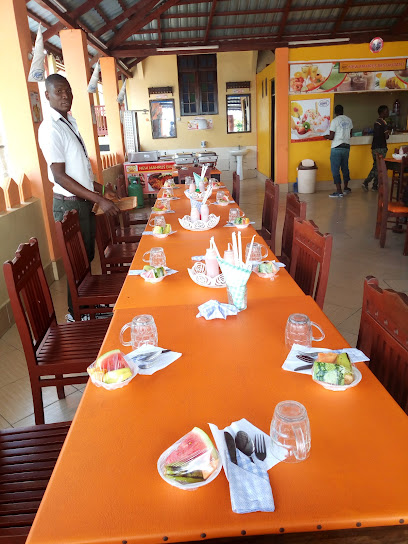
Stop Over Restaurant
Experience the authentic flavors of Swahili cuisine at Stop Over Restaurant in Lamu, a culinary destination for all food lovers.
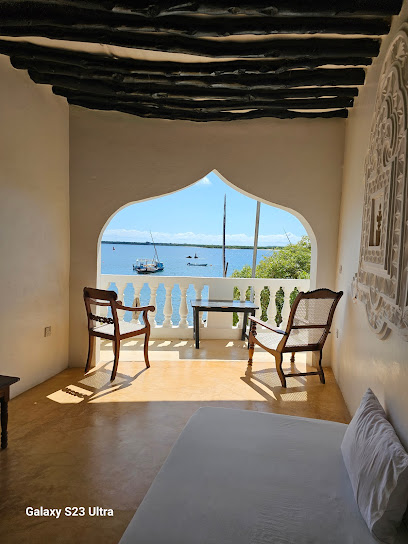
Labanda Restaurant
Experience the vibrant culinary culture of Lamu at Labanda Restaurant, serving authentic local and international flavors in a picturesque setting.
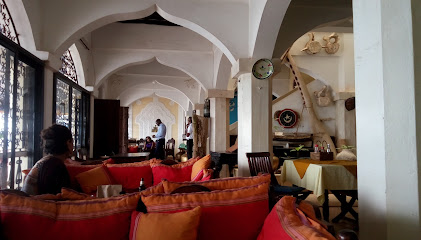
Whispers Cafe
Experience the essence of Lamu at Whispers Cafe, where local flavors meet international cuisine in a warm and inviting atmosphere.
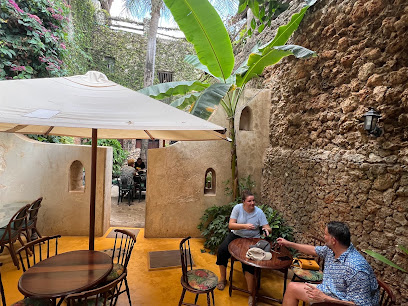
Sailors Joint
Discover culinary delights at Sailors Joint, a vibrant restaurant in Lamu offering fresh seafood and incredible coastal views.
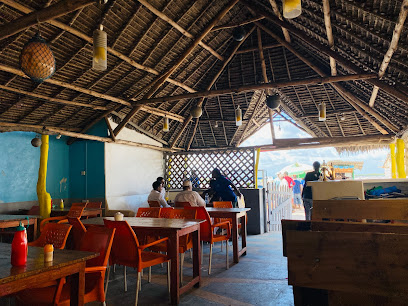
Bush Gardens
Experience the delightful flavors of Swahili cuisine at Bush Gardens, Lamu's premier dining destination amidst lush surroundings.
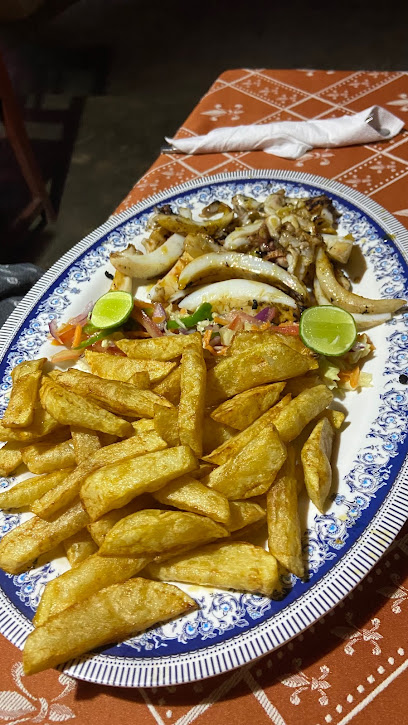
Mwana Arafa Restaurant Gardens
Discover the essence of Kenyan and Swahili cuisine at Mwana Arafa Restaurant Gardens in Lamu, where nature and flavor harmoniously blend.
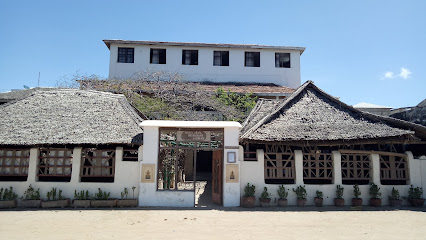
Aquarius Kitchen Lamu(former Umalila)
Discover the exquisite flavors of Lamu at Aquarius Kitchen, where local cuisine meets breathtaking ocean views for an unforgettable dining experience.
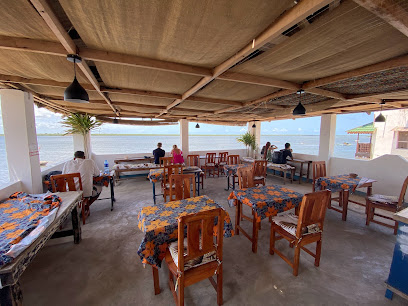
Coco Jambo Restaurant
Experience the authentic flavors of Lamu at Coco Jambo Restaurant, where local cuisine meets warm island hospitality.
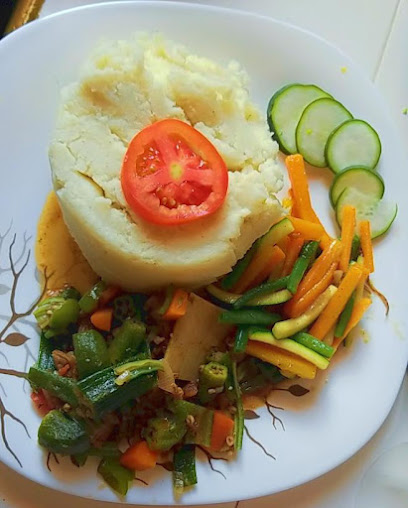
Travel experiences inspired by this city
Explore more travel diariesLocal Phrases
-
- HelloShikamoo
[shee-kah-moh] - GoodbyeKwaheri
[kwa-heh-ree] - YesNdio
[n-dyoh] - NoHapana
[hah-pah-nah] - Please/You're welcomeTafadhali
[tah-fah-dah-lee] - Thank youAsante
[ah-sahn-teh] - Excuse me/SorrySamahani
[sah-mah-hah-nee] - How are you?U hali gani?
[oo hah-lee gah-nee] - Fine. And you?Salama. Na wewe?
[sah-lah-mah. nah weh-weh] - Do you speak English?Unasema Kiingereza?
[oo-nah-seh-mah kee-in-geh-reh-zah] - I don't understandSielewi
[see-eh-leh-wee]
- HelloShikamoo
-
- I'd like to see the menu, pleaseNingependa kuona menyu, tafadhali
[ning-eh-pen-dah kwoh-nah meh-nyoo, tah-fah-dah-lee] - I don't eat meatSile nyama
[see-leh nyah-mah] - Cheers!Mambo vipi!
[mahm-boh vih-pee] - I would like to pay, pleaseNingependa kulipa, tafadhali
[ning-eh-pen-dah koo-lee-pah, tah-fah-dah-lee]
- I'd like to see the menu, pleaseNingependa kuona menyu, tafadhali
-
- Help!Msaada!
[msah-ah-dah] - Go away!Nenda zako!
[nen-dah zah-koh] - Call the Police!Piga polisi!
[pee-gah poh-lee-see] - Call a doctor!Piga daktari!
[pee-gah dah-kah-tee] - I'm lostNimepotea
[nee-meh-poh-teh-ah] - I'm illNinaumwa
[nee-nah-oom-wah]
- Help!Msaada!
-
- I'd like to buy...Ningependa kununua...
[ning-eh-pen-dah koo-noo-nwah] - I'm just lookingNatazama tu
[nah-tah-zah-mah too] - How much is it?Bei ni kiasi gani?
[beh-ee nee kyah-see gah-nee] - That's too expensiveHiyo ni ghali sana
[hee-yoh nee gha-lee sah-nah] - Can you lower the price?Unaweza kupunguza bei?
[oo-nah-weh-zah koo-poon-goo-zah beh-ee]
- I'd like to buy...Ningependa kununua...
-
- What time is it?Ni saa ngapi?
[nee sah-ah ngah-pee] - It's one o'clockNi saa moja
[nee sah-ah moh-jah] - Half past (10)Nusu hamsini
[noo-soo hahm-see-nee] - MorningAsubuhi
[ah-soo-boo-hee] - AfternoonMchana
[meh-chah-nah] - EveningJioni
[joh-ee-oh-nee] - YesterdayJana
[jah-nah] - TodayLeo
[leh-oh] - TomorrowKesho
[keh-shoh] - 1Moja
[moh-jah] - 2Mbili
[mbee-lee] - 3Tatu
[tah-too] - 4Nne
[n-nay] - 5Tano
[tah-noh] - 6Sita
[see-tah] - 7Saba
[sah-bah] - 8Nane
[nah-neh] - 9Tisa
[tee-sah] - 10Kumi
[koo-mee]
- What time is it?Ni saa ngapi?
-
- Where's a/the...?Iko wapi...?
[ee-koh wah-pee] - What's the address?Anwani ni ipi?
[ahn-wah-nee nee ee-pee] - Can you show me (on the map)?Unaweza kunionyesha (kwenye ramani)?
[oo-nah-weh-zah koo-nee-oh-nyeh-shah kweh-neh rah-mah-nee] - When's the next (bus)?Basi lijalo ni saa ngapi?
[bah-see lee-jah-loh nee sah-ah ngah-pee] - A ticket (to ....)Tiketi (kwenda ....)
[tee-keh-tee kwehn-dah]
- Where's a/the...?Iko wapi...?
History of Lamu
-
Lamu, located on the northern coast of Kenya, is one of the oldest and best-preserved Swahili settlements in East Africa. The town's history dates back to at least the 12th century when it was founded by the Swahili people. The Swahili culture itself is a blend of African, Arab, Persian, Indian, and European influences, which is reflected in Lamu’s unique architecture and traditions.
-
In the early 16th century, the Portuguese arrived on the East African coast and began to exert control over the region. Lamu fell under Portuguese influence and control, which lasted until the late 17th century. During this period, the town witnessed significant trade activities, with the Portuguese establishing trade routes and introducing new commodities to the local economy.
-
By the late 17th century, the Omani Arabs ousted the Portuguese from the East African coast, marking the beginning of a new era for Lamu. The town became an important center for the Omani Empire, and under Omani rule, Lamu prospered as a trading hub. This period saw the construction of many of Lamu's iconic buildings, including the Lamu Fort, which was built in 1813.
-
In the late 19th century, Lamu came under British control as part of the British East Africa Protectorate. The British colonial period brought infrastructural developments and the establishment of administrative systems. However, Lamu's traditional way of life remained largely intact, preserving its rich cultural heritage.
-
Kenya gained independence from British rule in 1963, and Lamu became part of the newly independent nation. Since then, the town has continued to thrive, attracting tourists from around the world. Lamu's historic and cultural significance was recognized internationally when it was designated a UNESCO World Heritage Site in 2001. Today, Lamu is celebrated for its well-preserved Swahili architecture, vibrant festivals, and rich cultural traditions.
-
The Lamu Cultural Festival, held annually, is one of the highlights of the town's cultural calendar. This festival showcases the rich Swahili culture, featuring traditional music, dance, poetry, and dhow races. It attracts visitors from across the globe, offering a unique opportunity to experience the traditions and heritage of Lamu firsthand.
Lamu Essentials
-
Lamu is accessible primarily via air and sea. The most convenient way to reach Lamu is by flying into Manda Airport (LAU), located on Manda Island, which is a short boat ride from Lamu Island. Several airlines operate flights from Nairobi’s Jomo Kenyatta International Airport (NBO) and Wilson Airport (WIL) to Manda Airport. Alternatively, you can take a bus or car to the coastal town of Mombasa, and from there, travel by bus or car to Mokowe Jetty, followed by a boat ride to Lamu Island.
-
Lamu is a car-free island, and transport is primarily by foot, donkey, or boat. The narrow streets make walking the most convenient way to explore the town. Donkey rides are available and offer a unique way to experience the island. For inter-island travel, traditional dhow boats and speedboats are available. Taxis on the water, locally known as 'boat taxis', can be hired for trips to and from Manda Island and other nearby islands.
-
The official currency in Kenya is the Kenyan Shilling (KES). Credit and debit cards are accepted at larger hotels and some restaurants, but cash is essential for small businesses, markets, and local transport. ATMs are available in Lamu Town, but it is advisable to carry sufficient cash, especially when visiting more remote areas. Foreign currency can be exchanged at banks and authorized forex bureaus.
-
Lamu is generally safe for tourists, but it is important to remain vigilant. Avoid walking alone at night, particularly in isolated areas. Petty theft can occur, so keep an eye on your belongings and avoid displaying valuables. Areas such as Shela Beach and Lamu Old Town are generally safe, but it's best to avoid the more deserted parts of the island after dark. Always use reputable boat services to avoid overcrowded or unsafe vessels.
-
In case of emergency, dial 999 for police assistance or 112 for medical emergencies. The main hospital on Lamu Island is King Fahad County Hospital, which provides general medical services. There are also several private clinics and pharmacies in Lamu Town. It is advisable to have comprehensive travel insurance that covers medical evacuation. For minor health issues, local pharmacies can provide over-the-counter medications.
-
Fashion: Do dress modestly, especially when visiting religious sites. Women should avoid wearing revealing clothing. Religion: Do respect local customs and traditions, including removing shoes when entering mosques. Public Transport: Do use boat taxis and donkeys for local transport. Avoid overcrowded boats for safety reasons. Greetings: Do greet with a handshake and a smile. Using a few Swahili phrases like 'Jambo' (Hello) and 'Asante' (Thank you) is appreciated. Eating & Drinking: Do try local dishes like Swahili seafood. Don’t refuse food or drink offered by locals as it can be seen as impolite.
-
To experience Lamu like a local, visit the Lamu Market early in the morning to witness the bustling activity and purchase fresh produce. Attend the Lamu Cultural Festival if visiting in November, which showcases traditional Swahili culture, including music, dance, and dhow races. Engage with the locals; they are often friendly and willing to share stories about the island's rich history. Don't miss a sunset dhow cruise, which offers spectacular views of the coastline.
-
Lamu offers a range of accommodation options from budget guesthouses to luxury resorts. Popular areas to stay include Lamu Town, Shela Village, and Manda Island. Many accommodations are housed in beautifully restored Swahili buildings, providing an authentic cultural experience. Always book in advance, especially during peak travel seasons.
-
Ensure you have all necessary vaccinations before traveling to Lamu, including those for yellow fever, typhoid, and hepatitis A and B. Malaria is present in the region, so taking prophylactic medication and using mosquito repellent is recommended. Drink bottled or purified water to avoid waterborne illnesses. Most accommodations and restaurants cater to dietary restrictions, but it’s always good to inform them in advance.
Nearby Cities to Lamu
-
Things To Do in Malindi
-
Things To Do in Mombasa
-
Things To Do in Diani Beach
-
Things To Do in Tanga
-
Things To Do in Moshi
-
Things To Do in Nairobi
-
Things To Do in Zanzibar City
-
Things To Do in Stone Town
-
Things To Do in Arusha
-
Things To Do in Naivasha
-
Things To Do in Dar es Salaam
-
Things To Do in Nakuru
-
Things To Do in Morogoro
-
Things To Do in Mogadishu
-
Things To Do in Eldoret
















